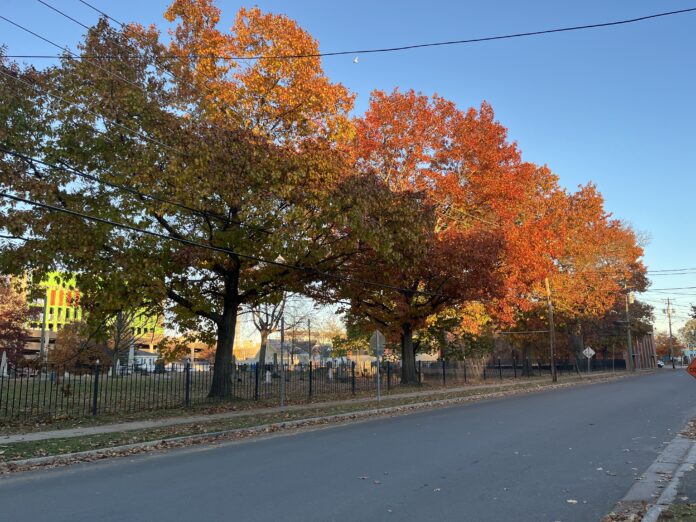On Oct. 19 Fredericton was recognized for the city’s commitment to strengthening green spaces and environmental initiatives. The city is already making progress on a new environmental strategy.
Fredericton won three international awards at the Communities in Bloom awards ceremony recognizing its commitment to strengthening green spaces and environmental initiatives earlier this month.
STU’s sustainability coordinator Lauren MacDonald commended the city for its efforts towards receiving these awards.
“I think these accomplishments underscore the city’s commitment to environmental stewardship and proactive planning,” said MacDonald.
Following the awards, Fredericton adopted a new urban forest strategy this past week that was made in collaboration with StanTec Consulting.
StanTec had been commissioned by the city in 2022 to form a 25-year management plan.
“The vision is to sustain a biodiverse urban forest throughout the city in a resilient environment and healthy community,” said Richard Hall, Fredericton’s city forester and assistant manager of parks and trees.
Hall said that the city was “directly” involved in forming the strategy over the past 18 months. In June, after internal discussions with city departments, stakeholders and members of the public were contacted for feedback before the final public draft was published in August.
According to Hall, Fredericton is working on developing an internal to the city urban forest working group to help them prioritize what they need to accomplish over the 25-year plan.
The strategy consists of 26 recommendations that were categorized into short-, medium-, or long-term items to be completed.
Of those recommendations, Hall highlighted the city will increase their tree planting numbers. They are set to double their annual output “over the next five to seven years.”
“Right now we plant essentially 500 street trees. That number is up from 350 only five years ago, so I can see that quite quickly start to grow up to 1000,” he said.
This is an “ambitious target” according to MacDonald, but she is still happy to see the city take the initiative to focus on tree diversity and resilience against climate impacts.
“This plan, along with the city’s other work to diversity and preserve the tree canopy, highlights a forward looking approach to urban forestry that will hopefully help Fredericton adapt to changing climate conditions,” said MacDonald.
Another recommendation that has received public interest is the implementation of a “food forest” within the city. This would involve planting apple trees along a public trail.
The strategy only commits to the growth of a single food forest, but Hall said the city can envision the addition of more in the future.
“I suspect [the food forest] could have the potential to grow, I think it’ll be quite popular with citizens,” said Hall. “We’re not going to be held to one.”
MacDonald believes that this is a “really interesting” recommendation and is excited to see how it is established.
She mentioned that STU piloted an edible community garden this past summer and is hoping to maintain this initiative going forward similarly to the food forest concept.
The final version of the strategy has yet to be published, the 26 recommendations are all on the final draft that was published in August.
Other notable recommendations include creating and maintaining a public education program, reforesting non-recreational open spaces and increasing the diversity of trees within the city.

